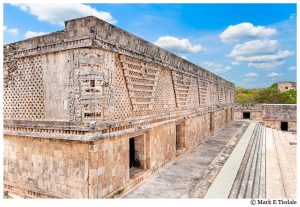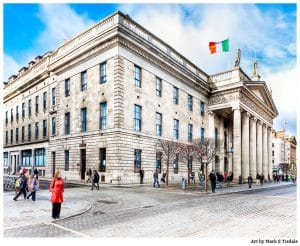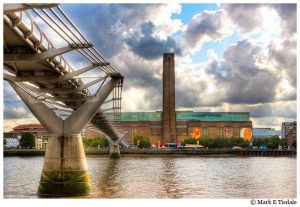Abu Simbel Prints
Ramses II, we were told, was the only Pharaoh of Egypt to bear the epithet, The Great. Ramses The Great lived to be 90 or 91 years old and reigned for some 67 years. He’s known today for being a warrior, a diplomat, a builder, and for his progeny. Ramses II is known to have had between 44 and 56 sons and 40-44 daughters. In Egypt, he was often referred to as “the great ancestor.” He was so long lived that he outlasted many of his children and would be followed as pharaoh by his 13th son.
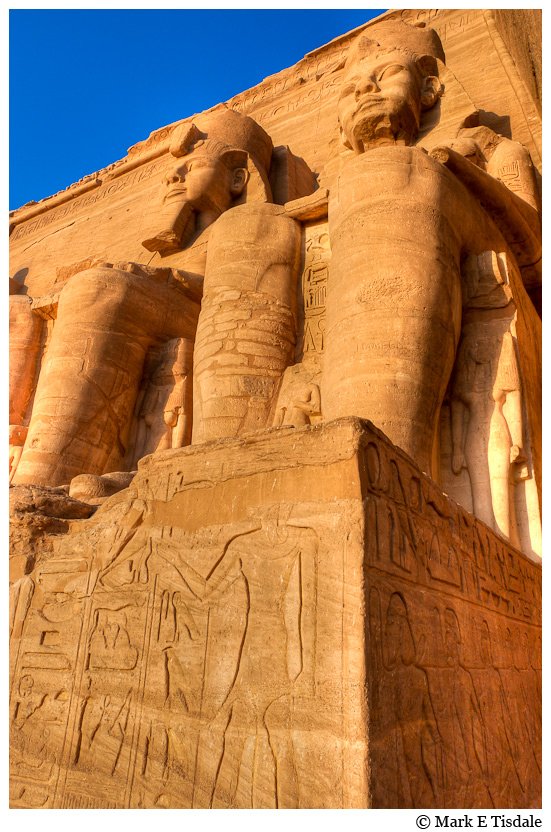
Ramses is also known as the great builder. It’s the buildings and monuments like the one pictured that he left behind that owe much to his legacy today. He built unlike any pharaoh before him, founding cities and covering Egypt and Nubia with buildings and monuments that bore his name. Among the greatest surviving monuments is Abu Simbel. This temple to Ramses II was carved from the solid rock of mountains in one piece. There were originally four colossi at the entrance, all representing Ramses with the crowns of upper and lower Egypt. The temple faced Nubia to remind the Nubians of the might and power of Ramses The Great.
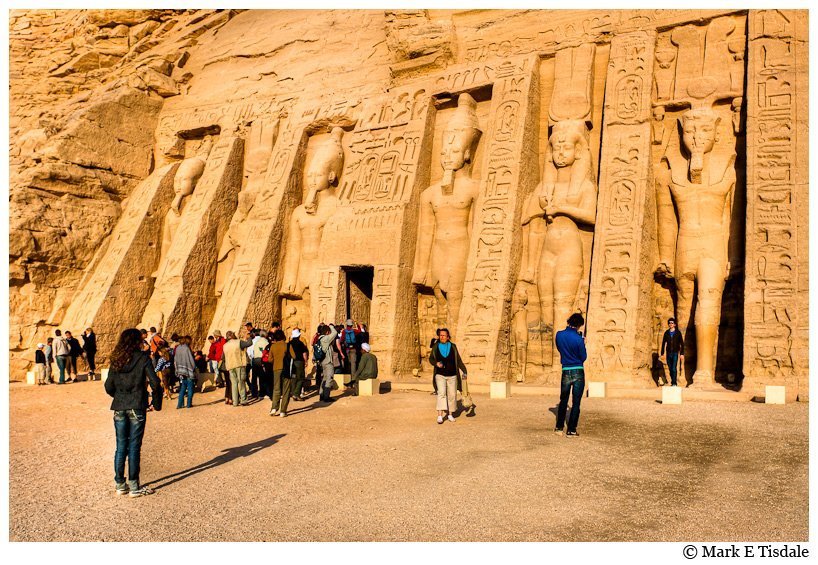
There are two temples at Abu Simbel, the larger to Ramses II, the smaller for his chief consort, Nefertari. This is only the second temple built for a consort of the Pharaoh, and more remarkably if you look at the statues in this photo, they represent both Nefertari and Ramses. Nefertari is represented as the goddess, Hathor. Normally, statues of the wives and children of the Pharaoh would never be taller than the knee of the statue of the Pharaoh and Nefertari is depicted as the same height as her king. This shows her status in the pharaoh’s eyes. Ramses and Nefertari visited Abu Simbel together in the 24th year of his reign.
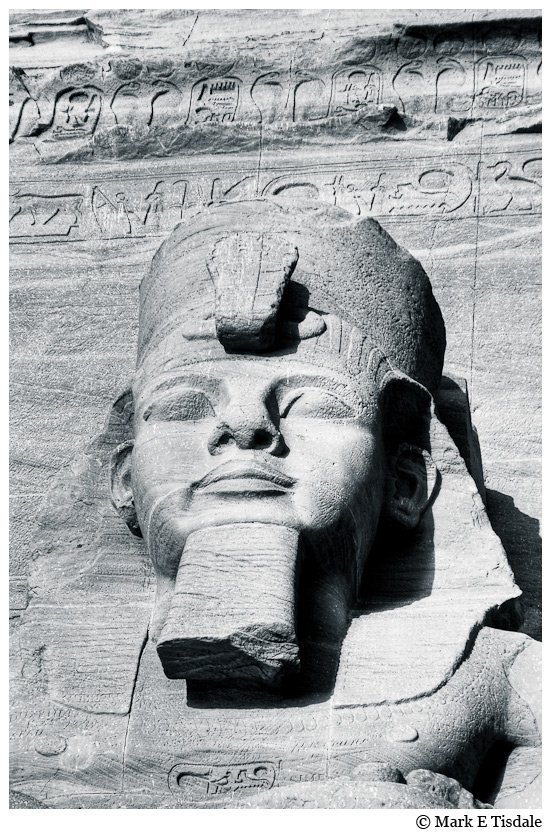
One final picture of the Pharaoh, Ramses The Great. Gaze upon these eyes and face from across the centuries. This is a close up of one of the colossi on the large temple. There were originally four colossi, but one was damaged in an earthquake. The remaining are in remarkable condition for being some 3,000 years old. Further, the amazing thing about Abu Simble is the entire structures were moved in the 1960’s. The high dam at Aswan threatened to flood the temples and UNESCO orchstrated the moving of these and other treasures to higher ground. The two temples were carved into large rocks and moved to their new location. There’s a slightly artificial feel to the place as a result, but it’s still amazing that they were able to save these monuments for future generations.
To see more of Abu Simbel and more prints from Egypt, please check out my Egypt Prints Gallery.



